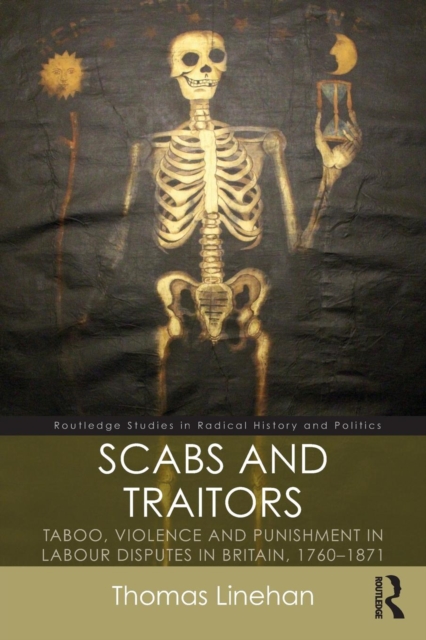
Scabs and Traitors : Taboo, Violence and Punishment in Labour Disputes in Britain, 1760-1871 Paperback / softback
by Thomas Linehan
Part of the Routledge Studies in Radical History and Politics series
Paperback / softback
Description
In its broadest sense, this book is concerned with the attempt by workers in Britain during the period 1760–1871 to engage in collective action in circumstances of conflict with their employers during a time when the nation and many of its traditional economic structures and customary modes of working were undergoing rapid and unsettling change.
More specifically, the book principally focuses on the attempt by those workers favouring a collective approach to struggle to overcome what they felt to be one of the main obstacles to collective action, the uncooperative worker.
At times during these decades, the sanctions directed by collectively inclined workmen at those workers deemed to have engaged in acts contrary to the interests of the trade and customary codes of behaviour in the context of strikes and other instances of friction in the workplace were severe and uncompromising.
Stern and unforgiving, too, was the struggle between the collectively inclined worker and the uncooperative worker in a more general sense, a contest that occasionally took a violent and bloody form.
In exploring the fractious and hostile relationship between these two conflicting parties, this book draws on concepts and insights from a range of scholarly disciplines in an effort to shift the perception and study of this relationship beyond many of the conventional paradigms and explanatory frameworks associated with mainstream trade union studies.
Information
-
Available to Order - This title is available to order, with delivery expected within 2 weeks
- Format:Paperback / softback
- Pages:226 pages
- Publisher:Taylor & Francis Ltd
- Publication Date:08/05/2018
- Category:
- ISBN:9781138186057
Other Formats
- Hardback from £130.00
- EPUB from £29.96
- PDF from £29.96
Information
-
Available to Order - This title is available to order, with delivery expected within 2 weeks
- Format:Paperback / softback
- Pages:226 pages
- Publisher:Taylor & Francis Ltd
- Publication Date:08/05/2018
- Category:
- ISBN:9781138186057










